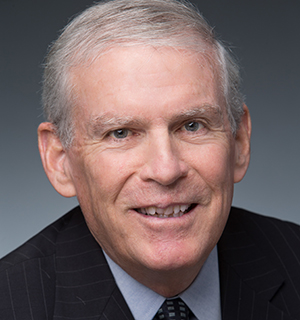How King v. Burwell Threatens the Health and Financial Stability of Consumers
Resource type: News
Families USA | [ View Original Source (opens in new window) ]
 By Ron Pollack, Executive Director, Families USA
By Ron Pollack, Executive Director, Families USA
One of the most incredible oddities about the King v. Burwell case is that the people who have the biggest stake in its outcome are not parties to the litigation. This is because there are only two sets of parties to the lawsuit: opponents of the Affordable Care Act (ACA) who wish to derail its implementation and the government that is implementing it. The people who could be most adversely affected by the decision will have no voice before the Supreme Court Justices.
Two recent studies, one from the Urban Institute and another from the Rand Corporation, clarify how significantly people might be affected by the Court’s decision. The Urban Institute projects that, if the anti-ACA petitioners prevail, 9.3 million moderate-income people would lose premium subsidies that make health insurance affordable, and 8.2 million people would join the ranks of the uninsured. Rand’s assessment is even worse, since it projects that health coverage enrollment would drop by 9.6 million.
Additionally, for people who somehow continue to purchase coverage, the premiums would skyrocket because younger, healthier people would be most likely to drop coverage while older, sicker people do everything they can to retain it. As a result, premiums would rise by 35 percent according to the Urban Institute, and Rand projects an increase of 47 percent.
Before the nine Supreme Court Justices hear and decide this case, it is crucial that the human dimension of this lawsuit is understood. That is why Families USA, the national organization for health care consumers, has collected and vetted the stories of some of the people who have the most to lose if the Court withdraws premium subsidies in the states where the federal government is operating health insurance marketplaces. Our friends at the Center for American Progress, the Asian and Pacific Islander American Health Forum, and the National Women’s Law Center are also publicizing stories of consumers whose health care is at risk.
The people most adversely affected have the following characteristics:
- They live in one of the more than 30 states with a health insurance marketplace run by the federal government.
- They are currently receiving significant premium subsidies, usually in the thousands of dollars per year, that make insurance affordable.
- They would be unable to afford health coverage if the subsidies are withdrawn, and they would re-join the ranks of the uninsured.
- They have such significant chronic health conditions that their lives are at risk if they can’t access needed health care.
Hear from consumers whose health and financial stability is threatened by King v. Burwell
During the weeks ahead, Families USA will enable the public to hear from more individuals representing the millions of consumers whose healthcare hangs in the balance of this case. It is our hope that this important human dimension is factored into the Court’s deliberations.
This blog, originally published February 9, 2015, is part of a weekly series—one that analyzes the political, legal, and social issues and ramifications of King v. Burwell, a lawsuit before the Supreme Court that threatens to undermine the Affordable Care Act (ACA). The case challenges the government’s provision of tax credits to help consumers buy health insurance in states where the federal government runs the marketplace. Learn about what’s at stake in King v. Burwell.
Center for American Progress, Families USA, National Women’s Law Center and the Urban Institute are Atlantic grantees.